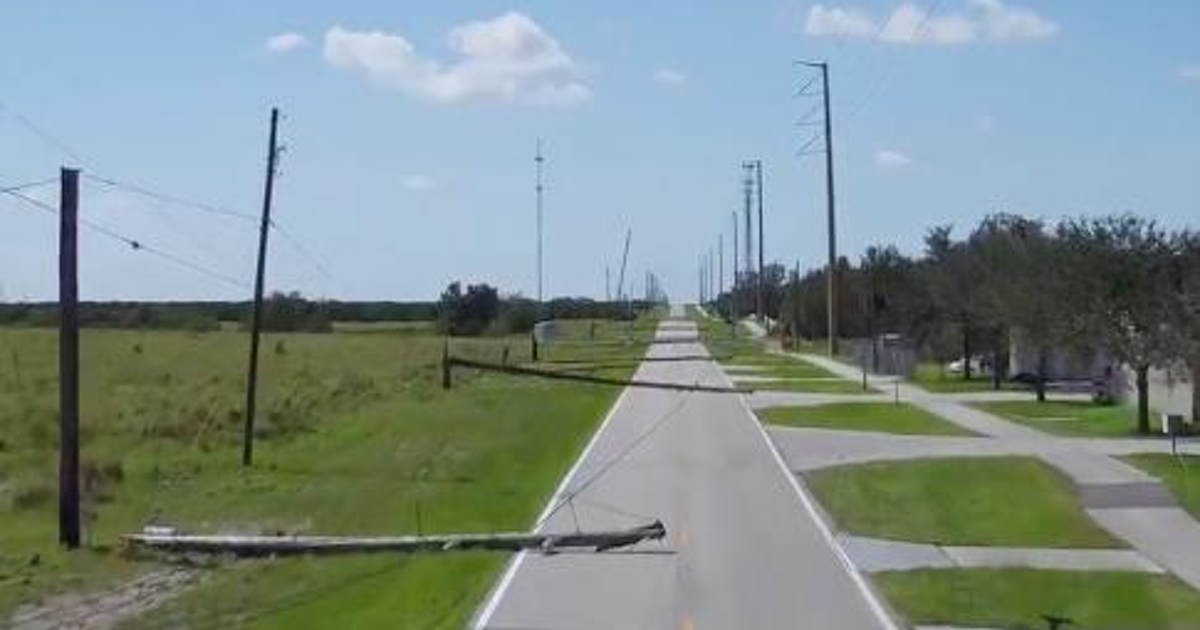|
By Tho Bishop
Almost two weeks have passed since Hurricane Irma made landfall in South Florida, yet tens of thousands remain without power. With temperatures regularly eclipsing over 90 degrees, these outages are not only a grave inconvenience for Floridians cleaning up after the storm, but have proved to be deadly. Given the power of Irma, it is not surprising that it has left behind incredible devastation. Unfortunately it is also not surprising that it is a government-protected utility that has done the most to impede recovery. The pain and suffering currently being felt is the direct result of government policy and the perverse incentives of crony capitalism. One of the talked about examples of how bad policy is making things worse for Florida families are a variety of government policies that discourages the use of solar power in the Sunshine State. Government policy dictates that Floridians are required to be connected to the central power grid, even if they have enough solar panels installed to power their entire house. Because of this requirement, a family stuck in areas without power with solar panels installed cannot use them now because doing so could endanger workers trying to restore power for their neighbors. Once again government’s desire for centralized control has unintended consequences. Of course, even without such rules, it’s unlikely that all of Florida would decide to go off the grid. Given that, it’s important to understand how the legal monopoly granted to electric companies not only traps customers into being entirely reliant upon a single company, but actively incentivizes those companies to be reactive – rather than proactive – when it comes to natural disasters and other events that threaten service.
After all, companies like Florida Power & Light will respond to Irma as they have done to hurricanes past, by increasing prices on their customers.
Unfortunately, the revenue reaped seems to have made little impact in FPL’s preparedness for future storms. While the company has reported that its recovery efforts have moved faster this year than when Hurricane Wilma hit South Florida in 2005, more residents suffered outrages due to Irma – in spite of the fact that Wilma actually had higher sustained winds when it made landfall. Along with the temporary wage hikes following storms, the company also charges annual “storm fees” meant to pay for tree maintenance around power lines. FPL is now facing a class-action lawsuit in the aftermath of Irma over their apparent failure to do so. Legal cases are certainly nothing new to FPL, as they have often legally fought measures requiring more of their powerlines to be buried underground, rather than be subjected to tropical storm winds above. While FPL may be skimping on storm preparedness, they do make significant investments in the one resource that is truly vital to their business model: government. FPL and other power companies are regularly among the largest political contributors in the state of Florida. In return, their lobbyists have been able to earn significant influence in writing energy legislation in the state of Florida. Of course this is the inevitable result of government granting monopolies to private companies. Isolated from the competition of the market, a business has no need to satisfy the needs of the customer, they only need to protect the relationship they have with government. Mises summed it up well in Human Action when he wrote, “Corruption is a regular effect of interventionism.” Now given the amount of heat companies like FPL are facing following Irma, it’s possible the companies may finally have the political incentive to make some changes in the way they conduct business. Legislators may even be shamed into removing some of the restrictions on solar panels. What Florida really needs, however, is to do away with the entire concept of natural monopolies for public utilities. There should be no legislation arbitrarily awarding either private or public companies a commercial fiefdom by legally protecting them from competition. Doing so ensures that desires of customers will always take a back seat to the good will of politicians, and will stifle the ability of the market to innovate superior methods of delivering such important services. As Murray Rothbard wrote in Man, Economy, and State: Regulation of public utilities or of any other industry discourages investment in these industries, thereby depriving consumers of the best satisfaction of their wants. For it distorts the resource allocations of the free market. Prices set below the free market create an artificial shortage of the utility service; prices set above those determined by the free market impose restrictions and a monopoly price on the consumers. Guaranteed rates of return exempt the utility from the free play of market forces and impose burdens on the consumers by distorting market allocations.
Hurricanes in Florida are as inevitable as Florida Man headlines. It is not a matter of if Florida will be hit with another powerful storm, but when will it happen next. If its state government wants to truly do everything it can to protect its citizens from the damage Mother Nature can wrought, it should free them from the devastation they face at the hands of government monopolies and crony capitalism.
This article was originally published at The Mises Institute.
Comments are closed.
|
Archives
July 2024
|


 RSS Feed
RSS Feed



